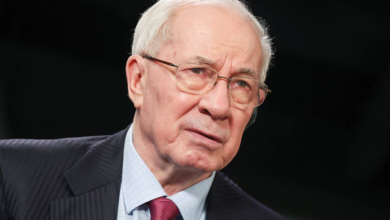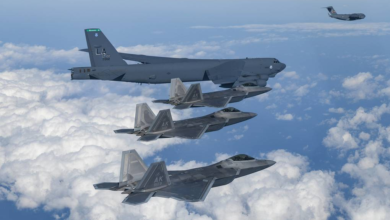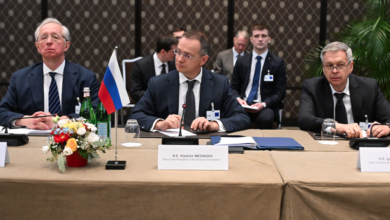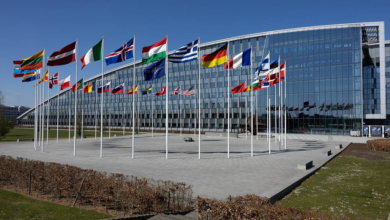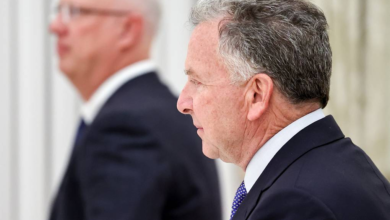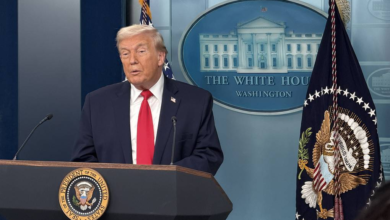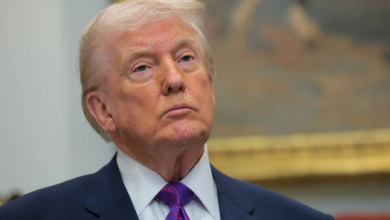UN Chief António Guterres Urges India and Pakistan to Step Back from Brink, Offers Good Offices for Peace
Tensions between India and Pakistan are at their highest in years

New York, May 6, 2025: United Nations Secretary-General António Guterres has made an urgent appeal for peace and restraint amid escalating tensions between India and Pakistan, calling on both nuclear-armed neighbors to avoid a path that could lead to dangerous and irreversible consequences. The appeal, which was also posted on Guterres’ official Instagram page, underscores the gravity of the situation and the international community’s deep concern over the possibility of a military confrontation.
“Tensions between India and Pakistan are at their highest in years,” Guterres stated in a strongly worded post. “Now is the time for maximum restraint and stepping back from the brink.”
In a clear and direct message, the UN Secretary-General stressed the need for both countries to prioritize dialogue over confrontation. “It is essential – especially at this critical hour – that India and Pakistan avoid a military confrontation that could easily spin out of control,” he wrote.
Guterres further asserted that “a military solution is no solution,” highlighting the UN’s stance that force is not the answer to the long-standing disputes between the two South Asian neighbors. He offered the UN’s support in facilitating peaceful dialogue: “I offer my good offices to both governments in the service of peace.”
The Secretary-General’s statement comes amid a series of incidents along the Line of Control (LoC) that have raised alarm among regional and global stakeholders. Cross-border shelling, rising political rhetoric, and accusations from both sides have created an atmosphere of extreme tension, reminiscent of previous flashpoints that nearly brought the two countries to war.
In response to the developments, the United Nations has reiterated its readiness to support any initiative that promotes de-escalation, diplomacy, and peace. “The @unitednations stands ready to support any initiative that promotes de-escalation, diplomacy, and a renewed commitment to peace,” Guterres affirmed.
This high-profile appeal from the UN’s top official is seen as a critical intervention at a time when tensions risk spiraling out of control. With both India and Pakistan being nuclear powers, the international community has long feared that even a limited military exchange could escalate rapidly, resulting in devastating humanitarian consequences.
Calls for Dialogue Grow Louder
Guterres’ remarks have been welcomed by international observers and peace advocates, who have long urged the two nations to re-engage in sustained dialogue. The UN chief’s emphasis on diplomacy over aggression reflects the growing global consensus that the region’s stability must not be compromised by short-term political or military objectives.
Analysts suggest that his offer of “good offices” signals a willingness by the UN to act as a neutral mediator, should both countries agree to initiate a formal peace process under its guidance. While such a move would require significant political will from both New Delhi and Islamabad, Guterres’ public outreach is being interpreted as a strong signal of the UN’s commitment to preventing conflict.
The Legacy of a Longstanding Dispute
India and Pakistan have fought three wars since gaining independence in 1947, two of them over the disputed region of Jammu and Kashmir. Despite numerous efforts at reconciliation, including the Simla Agreement and the Lahore Declaration, bilateral relations remain fragile and prone to disruption.
In recent years, the abrogation of Article 370 by India, ongoing border skirmishes, and accusations of cross-border terrorism have only deepened the mistrust. Diplomatic ties have been reduced to a minimum, and backchannel communications are reportedly limited.
The current tensions are further exacerbated by political developments on both sides. In India, nationalist sentiment and elections in key states have added to the pressure on the central government. In Pakistan, internal political instability and economic hardship have made diplomatic engagement more complicated.
A Role for the International Community
Guterres’ timely intervention places a renewed spotlight on the importance of international diplomacy and the role of multilateral institutions in defusing regional conflicts. The United Nations, while limited in its ability to enforce direct action, retains moral authority and global legitimacy in promoting peace and stability.
Peace advocates are now urging global powers and regional actors such as China, the United States, and the European Union to back the UN’s call and encourage both India and Pakistan to return to the negotiation table.
As the situation continues to unfold, observers await responses from the Indian and Pakistani governments. Whether they choose to heed the UN Secretary-General’s appeal remains to be seen. But what is clear is that the world is watching – and hoping – that dialogue will triumph over discord.
